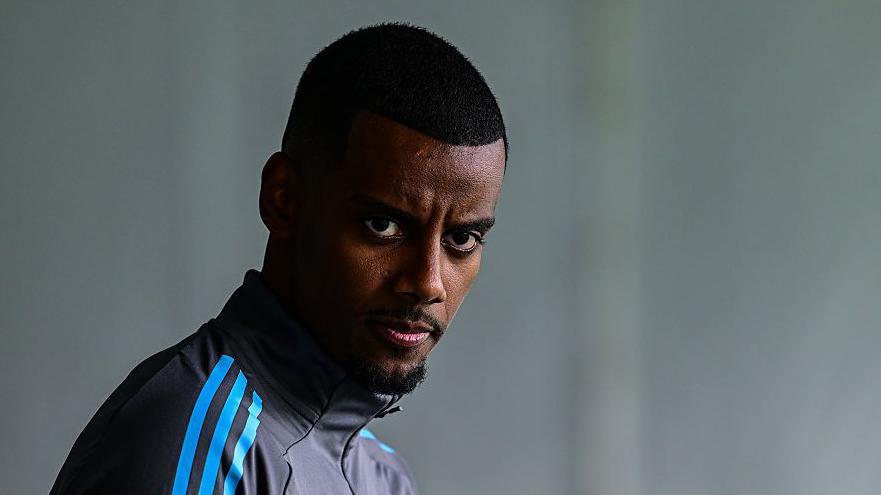In the ever-evolving saga of transfer windows, the latest buzz revolves around Newcastle United’s Alexander Isak, with Liverpool’s sizable bid of £110 million rejected just 19 days ago. The Swedish striker, who is now 25 years old, has become a pivotal character in this summer’s football narrative, as he continues to be the focal point of speculation amidst a backdrop of inactivity from both clubs. Initially, Liverpool’s offer was deemed insufficient, and since then, there have been no additional offers made for the forward. This backdrop leaves many questions lingering: Will Liverpool revive their interest with a fresh bid? Will Isak return to first-team training, and what occurs if a deal remains incomplete by the impending September 1 transfer deadline?
To understand why Liverpool has not returned with an enhanced offer for Isak, one must delve into Newcastle’s transfer activities thus far. Despite a sluggish start to the transfer window, Newcastle has recently shifted gears by securing reinforcements, including midfielder Jacob Ramsey from Aston Villa for £40 million and defender Malick Thiaw from AC Milan for approximately £34.6 million. Additionally, Baltimore native Anthony Elanga was acquired from Nottingham Forest for £55 million, along with England’s Aaron Ramsdale joining on loan. However, glaringly absent from these acquisitions is a striker, particularly following Callum Wilson’s departure, which makes Isak’s future increasingly significant.
As sources close to the club have indicated, the lack of a follow-up bid from Liverpool is closely tied to Newcastle’s own strikers situation. Although the club has insisted publicly that Isak is not for sale, the ongoing search for two new forwards may ultimately provide Liverpool with the leverage they need to make a more competitive offer. Rumors suggest that the next bid from Liverpool is expected to soar to a minimum of £120 million, but for now, the situation can be described as a waiting game, marked by uncertainty on both sides.
Transitioning away from Liverpool’s ambitions, attention should also be focused on Newcastle’s pursuit of a replacement for Wilson. Eddie Howe, the club’s manager, recently underscored the urgency of this need after a goalless match against Aston Villa and made it clear that addressing the striking position is a priority. However, identifying a suitable replacement has proven to be complex. Notable interests include Brentford’s Yoane Wissa, although the club has yet to meet his asking price, which exceeds £40 million. This pursuit reflects a broader trend, where integral players like Jorgen Strand Larsen are also on Newcastle’s radar, yet other clubs are reluctant to release key assets without substantial compensation.
The challenge Newcastle faces in closing such deals can be traced back to missed opportunities this summer, involving high-profile targets who have opted to join rivals such as Liverpool, Manchester United, and Chelsea instead. Furthermore, the financial implications of competing for quality forwards must be considered, as goalscorers tend to command steep transfer fees. Although Newcastle enjoys a healthier financial status post-pandemic, they are urged to act judiciously in player acquisitions, ensuring they do not jeopardize their chances of future signings through overspending.
Should Isak remain at Newcastle, integration back into the squad hinges on collaborative efforts between the player and coaching staff. Howe has repeatedly stated that Isak’s door remains open, emphasizing the importance of the striker’s next choices. Ongoing tensions among fans, as evidenced by disappointing remarks directed at Isak in a recent match, underscore the delicate nature of the situation.
As the deadline looms, Newcastle is faced with the dilemma of how to address both Isak’s position and their own needs for reinforcements. Amid increased bids for top strikers, players like Erling Haaland and Alexander Isak have proven to be successful investments, leading to heightened scrutiny on each move made. The possibility of reintegrating Isak could indeed serve as a stronger outcome than any last-minute transfers, verging on a critical opportunity for Newcastle’s strategic future. Ultimately, as the summer window draws to a close, both clubs find themselves at a significant juncture, with pivotal decisions awaiting resolution in this gripping narrative.












